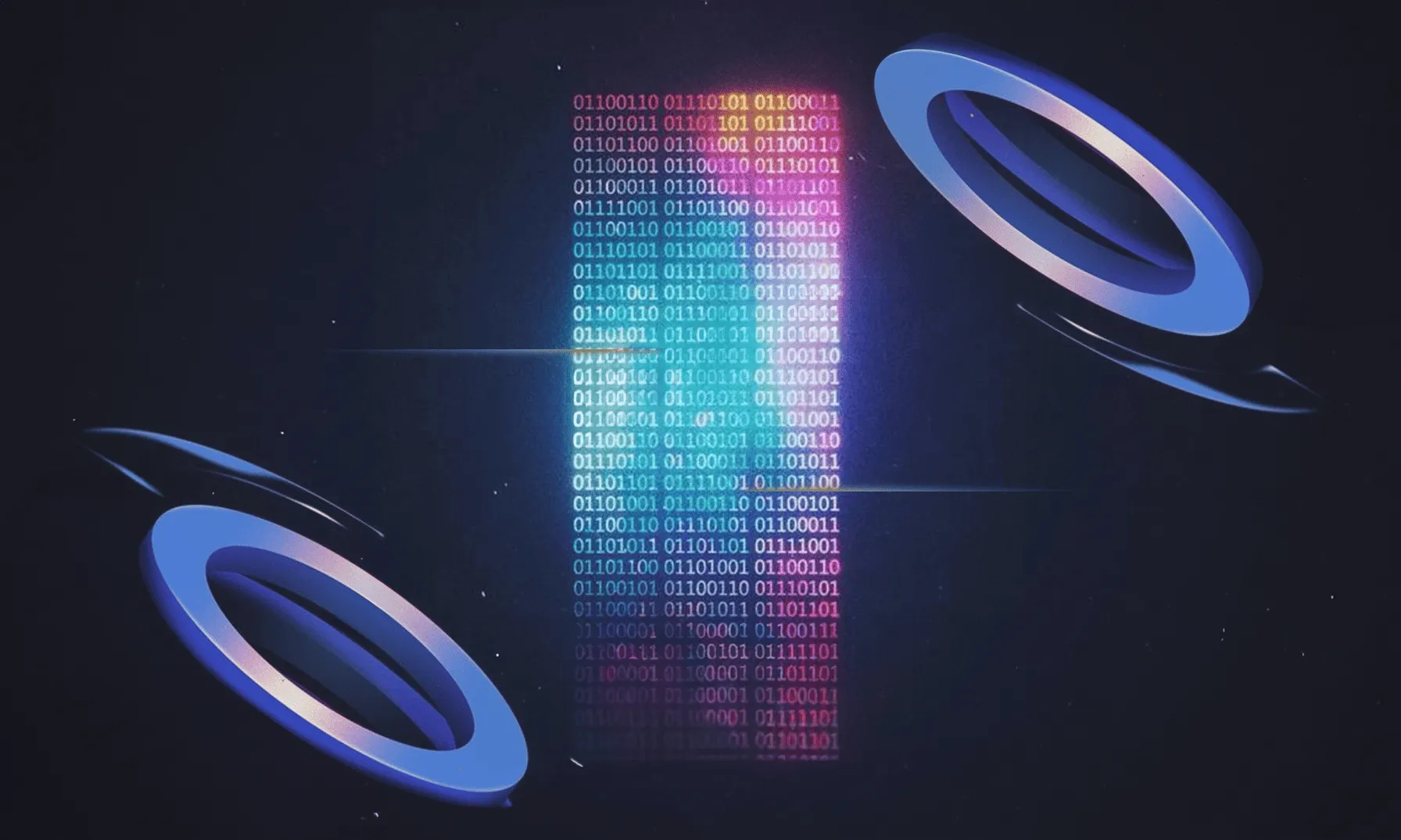April 10, 2025
Decoding Cyberspace: The Philosophy of the Digital Realm

Decoding Cyberspace: The Philosophy of the Digital Realm
Philosophy and cyberspace intersect in intriguing and complex ways. As you explore this interplay, you'll begin to understand how ancient philosophical questions are being reimagined in the digital realm.
Cyberspace is more than just a network of computers; it is a new frontier of human interaction, raising fundamental questions about the nature of reality, identity, and community.
Thinking philosophically about cyberspace involves considering how online spaces shape our understanding of self and others. You'll also explore how virtual experiences influence our perception of the physical world.
In the evolving landscape of digital technology and the World Wide Web, the philosophy of cybersecurity takes on a crucial role. Your conceptual frameworks for considering ethics, privacy, and governance are tested and expanded as you navigate this modern domain.
Philosophers are now critically engaging with how we reason and think about threats in these digital environments, applying age-old wisdom to the unprecedented challenges posed by cyberattacks and privacy concerns.
As technology continues to advance, the societal impact of cyberspace becomes a pivotal area of philosophical inquiry, prompting fresh perspectives on how you live, learn, and connect with one another.
Key Takeaways
- Cyberspace redefines traditional philosophical concepts, affecting your notion of reality and identity.
- Philosophical scrutiny is necessary to navigate ethics and security in the evolving digital context.
- The advancement of digital technologies transforms education, culture, and societal interaction patterns.
Conceptual Foundations of Cyberspace Philosophy
In cyberspace philosophy, you encounter unique considerations that bridge the abstract and the tangible. As you explore this field, you will grapple with the ontological status of virtual worlds, the ethical responsibilities within information technology, and the debates surrounding cyber materialism.
Virtual Reality and Ontological Questions
Virtual reality (VR) throws traditional ontological questions into new light. When you enter a virtual world, you are engaging with an existence that is both 'real' in terms of experience and 'unreal' in terms of physicality.
This duality prompts you to question the very nature of being—what it means to exist in a space that lacks physical dimensions yet feels tangible.
Information Technology's Ethical Dimensions
Ethical implications in information technology forge a critical subset of cyberspace philosophy. You must scrutinize the moral principles governing data privacy, digital rights, and cybersecurity.
A key concern in this realm is how you protect individuals' autonomy and dignity in an environment where information is both currency and commodity.
Understanding Cyber Materialism
In considering cyber materialism, you examine the relationship between the digital and the material worlds.
Materialism in a traditional sense is anchored in physicality, but cyberspace introduces a paradigm where value and substance can be derived from what is essentially immaterial.
This challenges you to rethink materialist doctrines and how they apply or adapt to virtual entities and digital assets.
New Technologies and Societal Impact
As you navigate through the complexities of the modern world, it's crucial to understand how new technologies intersect with and influence societal structures, including critical infrastructure and international relations.
Cybersecurity in Critical Infrastructure
Your everyday life is dependent on a secure and reliable operation of critical infrastructure—sectors such as energy, water, transportation, and finance.
With the integration of digital technology, these systems are increasingly interconnected.
A significant consequence of this interconnectivity is the elevated risk of cyber-attacks, which can lead to widespread disruptions.
For instance, a successful cyber-attack on electricity grids could have cascading effects, including loss of communication and emergency services.
As these infrastructures become smarter and more connected, your focus on cybersecurity must be more robust.
Initiatives to employ advanced technologies such as AI for predictive threat detection are vital. You also engage in continuous monitoring and implementing multi-layered defenses to protect these critical assets.
The Role of Technology in International Relations
The fabric of your international relations is being fundamentally altered by emerging technologies. Issues of cyber espionage and digital warfare are at the forefront of current diplomatic challenges.
Countries are leveraging innovations in digital technology to gain geopolitical advantages or to conduct intelligence operations, often blurring the lines between civilian and military targets.
Moreover, technology has become a tool for diplomacy and international collaboration.
You see countries forming alliances to set global standards for technology use and cybersecurity.
Such technological prowess and control over communication systems and data have become a new dimension of power, influencing the security of society at a global scale.
Philosophy of Cybersecurity
In the evolving landscape of cybersecurity, you are tasked with understanding not only the technical aspects but also the philosophical implications that underpin privacy, security, and the ethical challenges presented by the digital age.
Threat Analysis and Cyber Risks
When you think about threats and cybersecurity, it’s imperative to recognize the dynamic nature of cyber risks.
The dark web, for instance, is a concealed segment of the internet notorious for fostering illegal activities, including the trade of stolen data.
Healthcare cybersecurity has emerged as a critical field due to the sensitive nature of medical records, making it a target for cybercriminals.
Additionally, considering cybersecurity as a broad discipline, your selection of material to defend against these threats must be robust and adaptive.
Categories of Cyber Threats:
- Malware
- Phishing
- DDoS Attacks
In light of threat analysis, the cybersecurity landscape can be difficult to secure due to the sophistication of attackers who continually evolve their methods.
Acknowledging the complexity of cyber risks emphasizes why security matters on a fundamental level.
Philosophical Perspectives on Privacy and Security
Privacy and security are two philosophical pillars in cybersecurity that pose a dichotomy for you to balance.
The protection of user data against unauthorized access is of paramount importance, yet pursuing absolute security could impinge on individual privacy rights.
Your philosophical perspectives on these subjects should guide your approach to cybersecurity, advocating for policies and practices that respect both security and privacy imperatives.
Privacy Principles:
- Right to Consent
- Right to Anonymity
Security Axioms:
- Principle of Least Privilege
- Defense in Depth
Your capacity to protect digital assets relies on a solid understanding of these philosophical tenets, which can help navigate the complexities inherent in cybersecurity.
Digital Evolution and Culture
As digital technology advances, it profoundly shapes both mass media landscapes and the circulation of knowledge. You witness these changes daily as you navigate through a world where information is rapidly evolving and culture is continuously influenced by new forms of digital interaction.
Cyberspace and Mass Media Influence
Mass media has been transformed by the entrance of cyberspace, facilitating instant access to a myriad of content.
Through cyberspace, your experiences with media are no longer linear or singular; instead, you inhabit a digital environment where multiple media streams coexist.
This shift is encapsulated in works like Neuromancer, which foresaw a cyberspace-dominated society. Here, you can see how narratives predicted the blending of reality with virtual spaces, influencing your perceptions and interactions.
- Engagement Patterns: Traditional one-to-many communication has evolved into an interactive dialogue where you can engage with content and creators.
- Cultural Shifts: Global connectivity has led to a fusion of cultural norms and practices, directly impacting your own cultural identity.
Impact of Digitization on Knowledge Dissemination
The digitization wave has greatly expanded your ability to obtain and share information, standing as a beacon for the promotion of great social good.
It serves as a powerful reminder of how technology can democratize knowledge.
- Wider Reach: You can disseminate information at an unprecedented pace, breaking down geographical barriers that once hindered the spread of knowledge.
- Learning Opportunities: There's a new horizon where educational resources are abundant, allowing for a more inclusive and informed society.
Framing Cybersecurity within Philosophy
Understanding the intersections of cybersecurity and philosophy is essential as you navigate current technological challenges. The philosophical discourse surrounding cybersecurity raises important questions about morality, responsibility, and the societal impact of digital warfare.
Cyberwarfare and Geopolitics
Cyberwarfare significantly alters traditional geopolitical landscapes.
Geopolitical strategies now must account for the digital domain as a theater of conflict, where information warfare and cyber espionage are as critical as physical offensives.
For instance, the creation of the US Cyber Command reflects the recognition of cyberspace as a battlefield.
As you consider the first book on cybersecurity, recognize the evolving nature of global conflicts and how they can lead to very real consequences, possibly even loss of life, due to disruptions in critical infrastructure or military systems.
Ethical Frameworks for Emerging Technologies
Adopting ethical frameworks for emerging technologies guides you through the moral implications of your actions in cyber environments.
The problem of cyberwar is not just strategic but ethical.
Information technologies rapidly evolve, often outpacing the development of ethical guidelines that consider long-term societal impacts.
You must explore ethical principles when engaging with cutting-edge volumes of philosophy and computing, ensuring that digital advancements serve the broader good and prevent unintended harm.
Influences of Technological Personalities
In the rapidly evolving landscape of cyberspace, certain individuals stand out for their profound impact. You'll discover how scholars and innovators, along with public figures, shape technology's role in society and influence your digital experience.
Scholars and Innovators' Contributions
Assistant professors of philosophy like those examining the myth and technology play a pivotal role in interpreting technological progress. They challenge traditional narratives like the myth of progress and technological determinism.
Their critical insights offer you nuanced perspectives that influence how you may think about technology's role in your life.
On the other hand, serial innovators and entrepreneurs drive actual change in the digital realm. They are like characters out of Neuromancer, bringing cyberpunk visions to life. These creators not only revolutionize your day-to-day tools but also the very fabric of cyberspace where you operate.
Public Figures and Policy Shaping
Public speakers and influencers articulate and disseminate the technological visions that shape public opinion.
Their speeches and presentations can impact your understanding of emerging tech and its ethical implications as outlined by discussions hosted by institutions such as Harvard. When they address the intersection of technology and morality, they indirectly influence policies that govern your digital rights and privacy.
Furthermore, influential figures often engage with policymakers, guiding the development of legislation that affects how technology is used and regulated.
Through lobbying efforts and public discourse, these individuals shape the framework within which you and the digital community operate, ensuring that technology advances in a manner that aligns with societal values and ethical considerations.
Cyberspace in Education and Academia
As you dive into the realm of cyberspace within education and academia, you'll find a rich intersection of technology and philosophy influencing both curriculum development and research discourse.
These are not just theoretical discussions; they have practical applications that influence how academic lecturers approach teaching and how institutions design their cyber-related programs.
Curriculum Development for Cyber Philosophies
Your role as an academic lecturer involves not only imparting knowledge but also shaping the curriculum to meet the evolving needs of security studies.
Curriculum development for cyber philosophies doesn't happen in a vacuum—it's the product of interdisciplinary efforts that consider ethical implications, technological advancements, and historical contexts.
For example, if your institution is part of the Aula Polska initiative, you integrate forward-thinking pedagogical strategies within the curriculum that prepare students for complex cyber environments.
Consideration of Ethics: Explore the moral dimensions of cyber behavior.
- Case Studies: Use real-world scenarios to ground theoretical discussions.
- Technological Competence: Ensure students understand current cyber technologies.
- Practical Skills: Incorporate labs for hands-on experience with cyber tools.
- Historical Context: Teach the evolution of cyberspace philosophy.
- Timeline: Create a timeline of significant milestones, including seminal works and the Electronic Frontier Foundation's Declaration of Independence of Cyberspace.
Research and Academic Discourse in Technology
In academic discourse surrounding technology, your contribution as an educator or researcher directly impacts the wider understanding and development of cyber principles.
Security studies often take center stage, demanding rigorous analysis and innovative approaches. Recognizing and rewarding excellence in this field through accolades such as the Auler Awards can raise the profile of ground-breaking research.
- Security Analysis: Study systems to identify and mitigate cyber threats.
- Journals: Publish findings in reputable journals to advance the field.
- Collaboration: Engage in cross-disciplinary research teams.
- Forums: Attend conferences and forums to share and gain insights.
Conclusion
In cyberspace, your interaction with time and space transforms. This requires nuanced understanding and responsibilities.
Reflect on both the conceptual framework and the ethical implications in this digital age.




